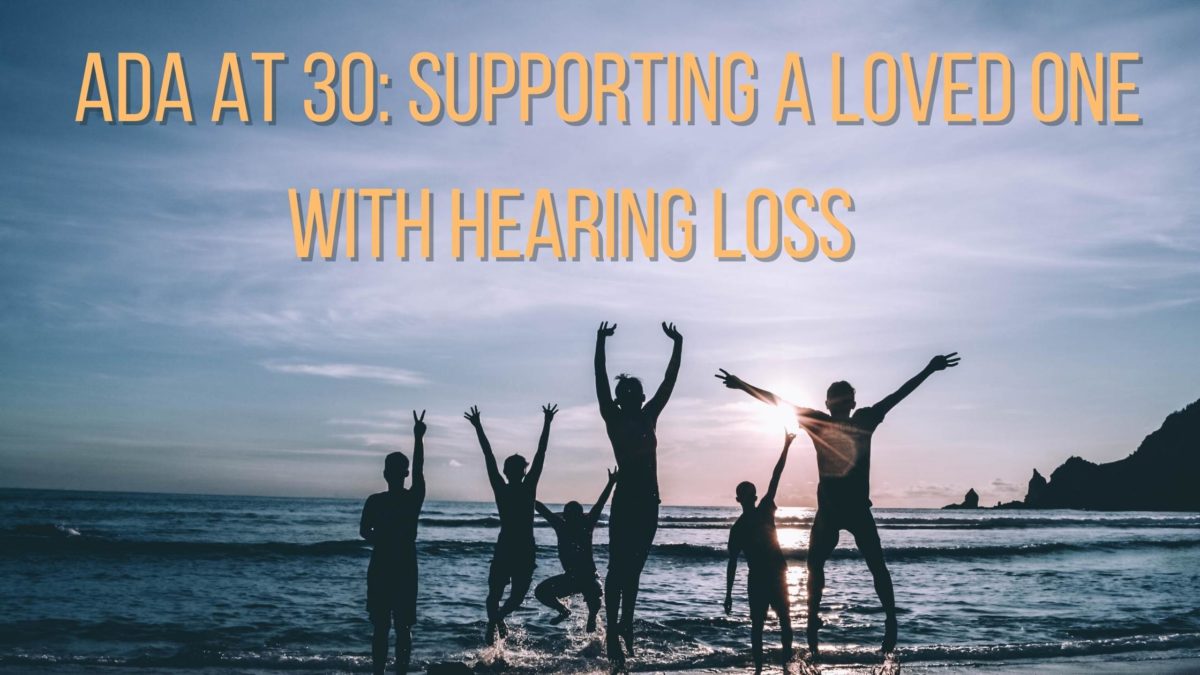More than 30 million Americans over the age of 12 display signs of hearing loss in both ears, according to standard hearing examinations. And the largest predictor of hearing loss is age, with one in three people over the age of 65 reporting hearing loss. That number increases when we shift focus a decade older, as half of the people 85 years and older deal with hearing loss.
With those kinds of numbers, it’s safe to assume that you or someone you love will deal with hearing loss in your lifetime. But how do you support a friend or family member when it arrives at your doorstep?
Causes of later onset hearing loss
Age-related hearing loss
For most people who receive a hearing loss diagnosis later in life, the natural process of aging is the cause. As we age, the fine cells of the inner ear deteriorate. These cells are both integral to the hearing process as well as being non-regenerative. That means that delicate cells we need to receive sound information do not repair themselves nor does the body produce more throughout our lives.
When these cells die, as the instrument which receives external sound information that is in turn transmitted to the brain, we simply give over less sound information to the brain’s processing centers. We experience this as hearing loss.
Noise-induced hearing loss
The second most common reason that people lose their hearing later in life is because of damage from noisy environments. Noise-induced hearing loss can happen suddenly, like in an accident or explosion. It can also take a more subtle route when the noise is loud enough to damage those fine cells, but not the volume of a violent, sudden episode. This type of hearing damage occurs slowly and over time. The first symptoms are similar to age-related hearing loss, in that the inner ear cells damaged simply deliver less sound information to the brain.
In both cases, initial signs that you have hearing loss may be that you’re asking people to repeat themselves often, conversation sounds garbled, or you have trouble making out dialogue in television and movies.
Signs a loved one has hearing loss
You might even notice your loved one’s hearing loss before they do. Remember, the symptoms are subtle and humans are adaptable creatures. Your loved one may develop tricks or tools, sometimes unconsciously, to work around their hearing loss.
You might first notice that conversations are more difficult and that you’re repeating yourself a lot. The frequency of phone calls they initiate might decline and then fall off entirely.
People with hearing loss will inherently have trouble connecting with others because conversations and socializing have become more difficult for them. You might see your loved one begin to isolate and withdraw from vibrant relationships.
Be compassionate in your approach
Remember that for some people, hearing loss carries a stigma or some shame. There are outdated ideas that it means you’re “too old.” Of course, people of all ages live fulfilling and joyful lives. Still, if you are bringing up your loved one’s hearing loss to them, it might be a touchy subject so proceed with caution.
Gently explain that you think they might have hearing loss. Be compassionate and open to their perspective. It takes a lot of work for someone with hearing loss to participate in conversations and so one of the best gifts you can give your loved one is to be someone who listens.
Offer to help them seek help
Even if it takes more than one – or five! – conversations, urging your loved one to seek treatment is worth it. A recent survey conducted by the American Speech-Language-Hearing Association found that the encouragement of friends and family is the most persuasive reason for a person with hearing loss to seek treatment.
Volunteer to accompany them to their hearing consultation. You might even offer to make your own appointment and go through the process together. Confronting hearing loss is a brave step, one that many people who have trouble hearing wait a decade or more to take. Affirm their courage and openly recognize that the process can be scary. Listen to their anxieties and let them know you are on their side.
Continue to support them through the journey
If treatment is an option for your loved one, it can be incredibly beneficial to use the buddy system to navigate the experience of choosing hearing aids or other hearing health solutions. It’s great to have emotional support, plus it can be an overwhelming amount of information to take in during those early days.
Our team of hearing health experts is here to help you and your friends and family experience the best hearing experience possible for you. Schedule a hearing consultation today and we will help you get starting on your best hearing health journey.

